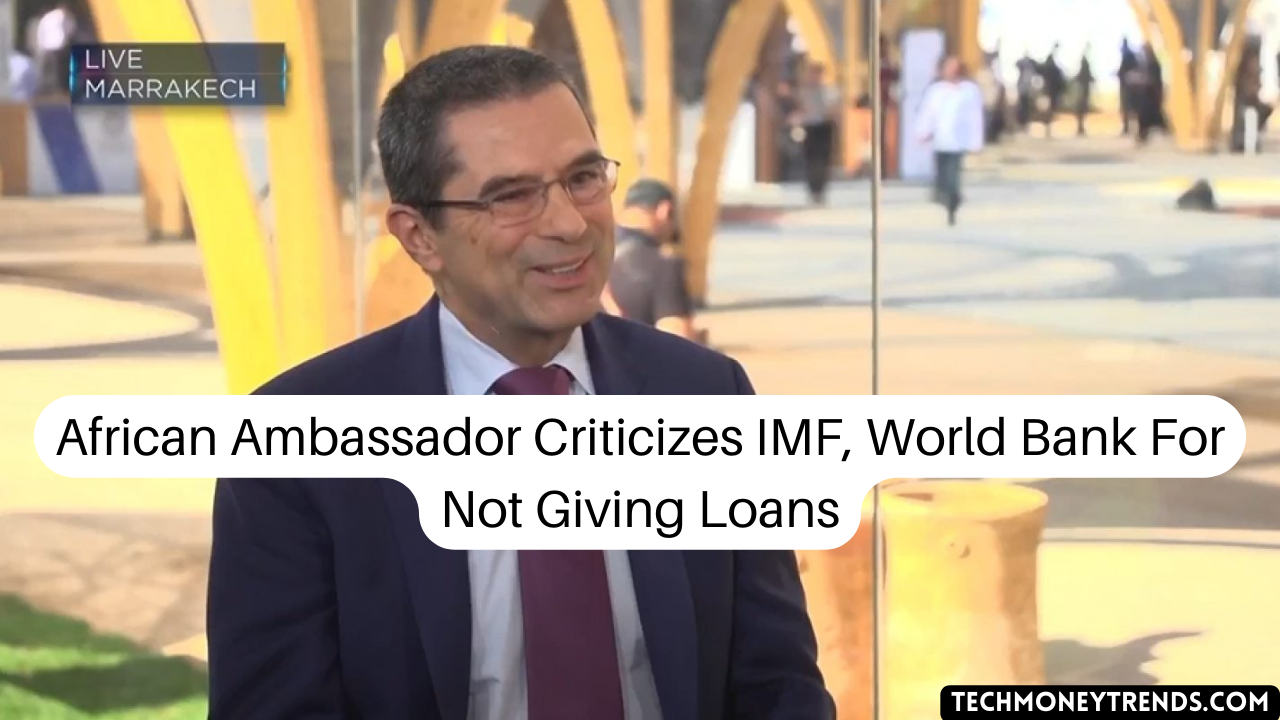In recent times, discussions surrounding the International Monetary Fund (IMF) and the World Bank’s role in Africa have gained substantial momentum. A prominent African ambassador criticizes IMF of these institutions for their perceived insufficiencies in providing financial support to the continent is a testament to the ongoing debate. To grasp the depth of this subject, one must explore multiple facets: the efficacy of the IMF in Africa, its historical and present-day relationship with the continent, the tangible effects of its policies on African nations, and the ownership structures of these global financial giants.
Is the IMF Beneficial for Africa?
Historical Context:
The IMF came into existence in 1944, marking the beginning of its relationship with Africa. Established with the objective of fostering monetary cooperation and ensuring financial stability, the IMF aims to facilitate balanced growth in international trade and offer resources to help member countries in need. Over the decades, the IMF has played a role in steering economic directions for many African nations.
Positive Outlook:
Many supporters believe that the IMF’s involvement in Africa is necessary. They point to instances where the institution has:
– Assisted countries with much-needed economic reforms.
– Played a pivotal role in achieving stability.
– Assisted in crafting better financial management strategies, especially for nations previously grappling with economic challenges.
The Critique:
Despite the positive narratives, there are palpable concerns. Detractors believe that the stringent conditions often accompanying IMF loans can lead to austerity measures. Such stipulations, they argue, can:
– Hamper local economies.
– Lead to cuts in public sector spending, affecting healthcare, education, and other vital services.
– Reduce the quality of life for the masses.
The Evolution of IMF and Africa’s Relationship
Understanding the bond between Africa and the IMF requires more than a surface-level analysis. Their relationship, defined by agreements, collaborations, policy implementations, and at times, disagreements, has seen several phases.
Initially, many African countries approached the IMF for financial assistance, especially during times of balance of payment problems. Such assistance often came with the expectation that these nations would implement specific economic reforms. Nonetheless, as many years passed, the acknowledgment that a one-size-fits-all approach probably won’t be well-suited for Africa’s different monetary and socio-social scene turned out to be more unmistakable.
African ambassador criticizes IMF argue that many economic policies promoted by the IMF don’t necessarily cater to the specific needs of African countries. They advocate for more tailored, context-specific strategies, emphasizing the unique challenges and opportunities present across African nations.
How Has the IMF’s Influence Permeated African Economies?
The IMF’s footprint in Africa is noticeable across various sectors:
1. Economic Reforms: One of the preconditions for nations to be eligible for IMF loans is the implementation of structural adjustments. These can encompass:
– Reduction in public spending.
– Privatization of state-owned entities.
– Trade liberalization.
2. Currency Stabilization: Several African countries, with the IMF’s guidance, have achieved more stable currencies. This stabilization promotes:
– Enhanced trade opportunities.
– Attraction of foreign investments.
3. Inflation Control: The monetary policies introduced or advocated by the IMF frequently target inflation reduction, ensuring:
– Preservation of citizens’ purchasing power.
– Enhanced economic stability.
4. Impact on Public Services: A significant critique of the IMF’s influence is the potential decline in public services. Critics believe that austerity measures can:
– Limit resources allocated to vital sectors like health and education.
– Hamper overall socio-economic development.
Understanding the Ownership and Structure of the IMF and World Bank
The intricate ownership structures of the IMF and World Bank often pique global interest:
– IMF: The institution is collectively owned by its 190 member countries. Notably, the voting power of each country within the IMF is proportionate to its financial contribution, leading to a scenario where nations with higher contributions wield more significant influence.
– World Bank: Similarly, the World Bank, focusing predominantly on long-term economic development and poverty reduction, is owned by its member countries.
Both entities, with their strengths and areas of improvement, are central to discussions surrounding global financial structures and their implications on continents like Africa.
Wrapping Up: Towards a Constructive Dialogue
The debate around the IMF and World Bank’s role in Africa is far from black and white. What’s essential is an evolving dialogue, one that recognizes the genuine challenges and potentials of the African continent. As the global economic landscape shifts, the hope is for these institutions to adapt and for African nations to rise, harnessing their intrinsic strengths and addressing their challenges head-on.
In light of the African ambassador’s recent comments and the historical context, a nuanced approach to understanding these institutions’ roles in Africa becomes imperative. The road ahead, filled with opportunities and challenges, beckons for collaboration, understanding, and mutual respect.

